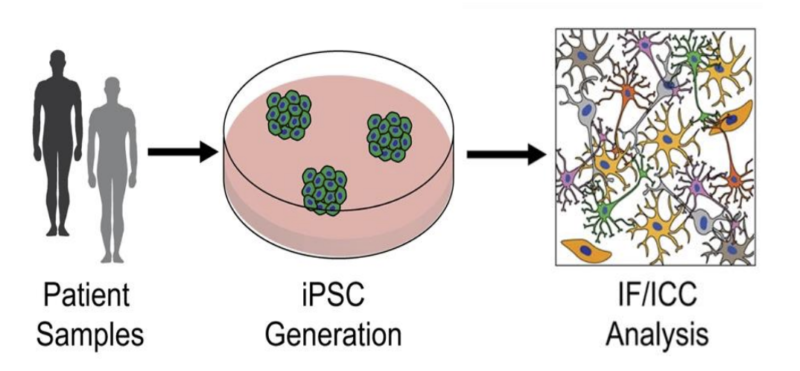Unraveling the molecular role of specific synaptic components in human iPSC-derived neurons
Department of Molecular Biotechnology and Health Sciences – Paola Defilippi’s lab
MBC1, Via Nizza 52, 10126 Torino
In our lab in the last years, we have characterized the role of two proteins, p140Cap and Skt, in synaptic plasticity, as components of signaling complexes involved in key synaptic functions (Jaworski et al., 2009; Repetto et al., 2014; Alfieri et al., 2016; Russo et al., 2019; Angelini, Morellato et al, 2022; Morellato et al, 2023, MS in preparation). Most of our studies were performed in mouse knock-out models. With this PhD project we would like to unravel the role of these proteins in human neurons derived from iPSC cells.

iPSCs are adult pluripotent stem cells generated from somatic cells by the introduction of reprogramming factors. Like other pluripotent stem cells, iPSCs can be coaxed to differentiate into neurons as well as other terminally differentiated cell types by exposure to a combination of growth factors and cell culture conditions. Human iPSCs (hiPSCs) thus make it possible to study human neurons, a previously inaccessible cell type, upon specific recombination techniques, i.e. to ablate the gene coding one specific synaptic protein.
We have already generated iPSC cells knock out from both the genes of interest, that will be differentiated into neurons and analyzed with cell, biochemical, molecular and electrophysiology techniques.
We will offer to the PhD student all the conditions to carry out her/his work, with innovative techniques in a center which benefit of the facilities required to carry on the proposed research, including fully equipped iPSC cell culture facility and fully equipped microscope facility.
If interested, please write to paola.defilippi@unito.it for a meeting.

